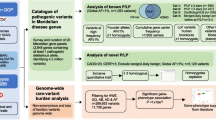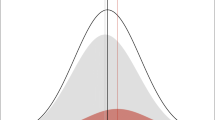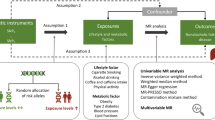Abstract
Purpose of Review
Genome-wide association studies (GWAS) have been the primary tool for unbiased assessment of the genetic basis of coronary artery disease (CAD) for more than a decade. We summarize successes as well as shortcomings of recent studies in this context.
Recent Findings
The number of CAD-associated loci has more than doubled in the past year to 161. This rapid progress has been in large part due to the release of genome-wide genotyping data for the largely European participants of the UK Biobank study which has been combined with existing GWAS from the CARDIoGRAMplusC4D consortium. Additional discoveries have been achieved through large-scale genotyping of participants using custom high-yield genotyping arrays including the Metabochip and the Exome chip. As a consequence, the ability of genetic risk scores in predicting incident CAD events has improved but that improvement has only been shown in European populations.
Summary
GWAS have proven to be a fruitful approach for uncovering the genetic drivers of CAD. However, determining the mechanisms of association of GWAS findings remains a challenging endeavor requiring long-term investment. Genetic risk scores offer an opportunity for recent findings to have an immediate clinical impact. Going forward, CAD genetics will benefit greatly from the release of more genetic data produced by mega-biobanks. These new data will allow for the more comprehensive examination of underrepresented populations.

Similar content being viewed by others
References
Papers of particular interest, published recently, have been highlighted as: • Of importance •• Of major importance
Marenberg ME, Risch N, Berkman LF, Floderus B, de Faire U. Genetic susceptibility to death from coronary heart disease in a study of twins. N Engl J Med. 1994;330:1041–6. https://doi.org/10.1056/NEJM199404143301503.
Wienke A, Holm NV, Skytthe A, Yashin AI. The heritability of mortality due to heart diseases: a correlated frailty model applied to Danish twins. Twin Res Off J Int Soc Twin Stud. 2001;4:266–74.
Sudlow C, Gallacher J, Allen N, Beral V, Burton P, Danesh J, et al. UK biobank: an open access resource for identifying the causes of a wide range of complex diseases of middle and old age. PLoS Med. 2015;12:e1001779. https://doi.org/10.1371/journal.pmed.1001779.
Gaziano JM, Concato J, Brophy M, Fiore L, Pyarajan S, Breeling J, et al. Million veteran program: a mega-biobank to study genetic influences on health and disease. J Clin Epidemiol. 2016;70:214–23. https://doi.org/10.1016/j.jclinepi.2015.09.016.
Small AM, O’Donnell CJ, Damrauer SM. Large-scale genomic biobanks and cardiovascular disease. Curr Cardiol Rep. 2018;20:22. https://doi.org/10.1007/s11886-018-0969-8.
Frazer KA, Murray SS, Schork NJ, Topol EJ. Human genetic variation and its contribution to complex traits. Nat Rev Genet. 2009;10:241–51. https://doi.org/10.1038/nrg2554.
Booker R. Genetics: Analysis & Principles. 4th ed. New York: McGraw Hill; 2012.
Manolio TA. Genomewide association studies and assessment of the risk of disease. N Engl J Med. 2010;363:166–76. https://doi.org/10.1056/NEJMra0905980.
LaFramboise T. Single nucleotide polymorphism arrays: a decade of biological, computational and technological advances. Nucleic Acids Res. 2009;37:4181–93. https://doi.org/10.1093/nar/gkp552.
Myocardial Infarction Genetics Consortium, Kathiresan S, Voight BF, et al. Genome-wide association of early-onset myocardial infarction with single nucleotide polymorphisms and copy number variants. Nat Genet. 2009;41:334–41. https://doi.org/10.1038/ng.327.
•• Nikpay M, Goel A, Won H-H, et al. A comprehensive 1,000 genomes-based genome-wide association meta-analysis of coronary artery disease. Nat Genet. 2015;47:1121–30. https://doi.org/10.1038/ng.3396. A recent major CAD GWAS.
NCI-NHGRI Working Group on Replication in Association Studies, Chanock SJ, Manolio T, et al. Replicating genotype-phenotype associations. Nature. 2007;447:655–60. https://doi.org/10.1038/447655a.
Hoggart CJ, Clark TG, De Iorio M, et al. Genome-wide significance for dense SNP and resequencing data. Genet Epidemiol. 2008;32:179–85. https://doi.org/10.1002/gepi.20292.
Panagiotou OA, Ioannidis JPA, Genome-Wide Significance Project. What should the genome-wide significance threshold be? Empirical replication of borderline genetic associations. Int J Epidemiol. 2012;41:273–86. https://doi.org/10.1093/ije/dyr178.
Helgadottir A, Thorleifsson G, Manolescu A, Gretarsdottir S, Blondal T, Jonasdottir A, et al. A common variant on chromosome 9p21 affects the risk of myocardial infarction. Science. 2007;316:1491–3. https://doi.org/10.1126/science.1142842.
McPherson R, Pertsemlidis A, Kavaslar N, Stewart A, Roberts R, Cox DR, et al. A common allele on chromosome 9 associated with coronary heart disease. Science. 2007;316:1488–91. https://doi.org/10.1126/science.1142447.
Wellcome Trust Case Control Consortium. Genome-wide association study of 14,000 cases of seven common diseases and 3,000 shared controls. Nature. 2007;447:661–78. https://doi.org/10.1038/nature05911.
Samani NJ, Erdmann J, Hall AS, Hengstenberg C, Mangino M, Mayer B, et al. Genomewide association analysis of coronary artery disease. N Engl J Med. 2007;357:443–53. https://doi.org/10.1056/NEJMoa072366.
Trégouët D-A, König IR, Erdmann J, Munteanu A, Braund PS, Hall AS, et al. Genome-wide haplotype association study identifies the SLC22A3-LPAL2-LPA gene cluster as a risk locus for coronary artery disease. Nat Genet. 2009;41:283–5. https://doi.org/10.1038/ng.314.
Erdmann J, Grosshennig A, Braund PS, König IR, Hengstenberg C, Hall AS, et al. New susceptibility locus for coronary artery disease on chromosome 3q22.3. Nat Genet. 2009;41:280–2. https://doi.org/10.1038/ng.307.
Erdmann J, Willenborg C, Nahrstaedt J, Preuss M, Konig IR, Baumert J, et al. Genome-wide association study identifies a new locus for coronary artery disease on chromosome 10p11.23. Eur Heart J. 2011;32:158–68. https://doi.org/10.1093/eurheartj/ehq405.
Coronary Artery Disease (C4D) Genetics Consortium. A genome-wide association study in Europeans and South Asians identifies five new loci for coronary artery disease. Nat Genet. 2011;43:339–44. https://doi.org/10.1038/ng.782.
Barbalic M, Reiner AP, Wu C, Hixson JE, Franceschini N, Eaton CB, et al. Genome-wide association analysis of incident coronary heart disease (CHD) in African Americans: a short report. PLoS Genet. 2011;7:e1002199. https://doi.org/10.1371/journal.pgen.1002199.
Lu X, Wang L, Chen S, et al. Genome-wide association study in Han Chinese identifies four new susceptibility loci for coronary artery disease. Nat Genet. 2012;44:890–4. https://doi.org/10.1038/ng.2337.
CARDIoGRAMplusC4D Consortium, Deloukas P, Kanoni S, et al. Large-scale association analysis identifies new risk loci for coronary artery disease. Nat Genet. 2013;45:25–33. https://doi.org/10.1038/ng.2480.
•• Myocardial Infarction Genetics and CARDIoGRAM Exome Consortia Investigators, Stitziel NO, Stirrups KE, et al (2016) Coding Variation in ANGPTL4, LPL, and SVEP1 and the Risk of Coronary Disease. N Engl J Med 374:1134–1144 . doi: https://doi.org/10.1056/NEJMoa1507652. A recent major CAD GWAS.
•• Webb TR, Erdmann J, Stirrups KE, Stitziel NO, Masca NG, Jansen H, et al. Systematic evaluation of pleiotropy identifies 6 further loci associated with coronary artery disease. J Am Coll Cardiol. 2017;69:823–36. https://doi.org/10.1016/j.jacc.2016.11.056. A recent major CAD GWAS.
•• Howson JMM, Zhao W, Barnes DR, Ho WK, Young R, Paul DS, et al. Fifteen new risk loci for coronary artery disease highlight arterial-wall-specific mechanisms. Nat Genet. 2017;49:1113–9. https://doi.org/10.1038/ng.3874. A recent major CAD GWAS.
•• Verweij N, Eppinga RN, Hagemeijer Y, van der Harst P. Identification of 15 novel risk loci for coronary artery disease and genetic risk of recurrent events, atrial fibrillation and heart failure. Sci Rep. 2017;7:2761. https://doi.org/10.1038/s41598-017-03062-8. A recent major CAD GWAS.
•• Nelson CP, Goel A, Butterworth AS, Kanoni S, Webb TR, Marouli E, et al. Association analyses based on false discovery rate implicate new loci for coronary artery disease. Nat Genet. 2017;49:1385–91. https://doi.org/10.1038/ng.3913. A recent major CAD GWAS.
•• Klarin D, Zhu QM, Emdin CA, Chaffin M, Horner S, McMillan B, et al. Genetic analysis in UK biobank links insulin resistance and transendothelial migration pathways to coronary artery disease. Nat Genet. 2017;49:1392–7. https://doi.org/10.1038/ng.3914. A recent major CAD GWAS.
•• van der Harst P, Verweij N. Identification of 64 Novel Genetic loci provides an expanded view on the genetic architecture of coronary artery disease. Circ Res. 2018;122:433–43. https://doi.org/10.1161/CIRCRESAHA.117.312086. A recent major CAD GWAS.
Lettre G, Palmer CD, Young T, Ejebe KG, Allayee H, Benjamin EJ, et al. Genome-wide association study of coronary heart disease and its risk factors in 8,090 African Americans: the NHLBI CARe project. PLoS Genet. 2011;7:e1001300. https://doi.org/10.1371/journal.pgen.1001300.
Franceschini N, Carty C, Bůzková P, et al. Association of genetic variants and incident coronary heart disease in multiethnic cohorts: the PAGE study. Circ Cardiovasc Genet. 2011;4:661–72. https://doi.org/10.1161/CIRCGENETICS.111.960096.
Vargas JD, Manichaikul A, Wang X-Q, Rich SS, Rotter JI, Post WS, et al. Common genetic variants and subclinical atherosclerosis: the multi-ethnic study of atherosclerosis (MESA). Atherosclerosis. 2016;245:230–6. https://doi.org/10.1016/j.atherosclerosis.2015.11.034.
Takeuchi F, Yokota M, Yamamoto K, Nakashima E, Katsuya T, Asano H, et al. Genome-wide association study of coronary artery disease in the Japanese. Eur J Hum Genet EJHG. 2012;20:333–40. https://doi.org/10.1038/ejhg.2011.184.
Tajbakhsh A, Khorrami MS, Hassanian SM, Aghasizade M, Pasdar A, Maftouh M, et al. The 9p21 locus and its potential role in atherosclerosis susceptibility; molecular mechanisms and clinical implications. Curr Pharm Des. 2016;22:5730–7.
Gudbjartsson DF, Bjornsdottir US, Halapi E, Helgadottir A, Sulem P, Jonsdottir GM, et al. Sequence variants affecting eosinophil numbers associate with asthma and myocardial infarction. Nat Genet. 2009;41:342–7. https://doi.org/10.1038/ng.323.
Schunkert H, König IR, Kathiresan S, Reilly MP, Assimes TL, Holm H, et al. Large-scale association analysis identifies 13 new susceptibility loci for coronary artery disease. Nat Genet. 2011;43:333–8. https://doi.org/10.1038/ng.784.
Abifadel M, Varret M, Rabès J-P, Allard D, Ouguerram K, Devillers M, et al. Mutations in PCSK9 cause autosomal dominant hypercholesterolemia. Nat Genet. 2003;34:154–6. https://doi.org/10.1038/ng1161.
Cohen JC, Boerwinkle E, Mosley TH, Hobbs HH. Sequence variations in PCSK9, low LDL, and protection against coronary heart disease. N Engl J Med. 2006;354:1264–72. https://doi.org/10.1056/NEJMoa054013.
Musunuru K, Pirruccello JP, Do R, Peloso GM, Guiducci C, Sougnez C, et al. Exome sequencing, ANGPTL3 mutations, and familial combined hypolipidemia. N Engl J Med. 2010;363:2220–7. https://doi.org/10.1056/NEJMoa1002926.
Dullaart RPF. PCSK9 inhibition to reduce cardiovascular events. N Engl J Med. 2017;376:1790–1. https://doi.org/10.1056/NEJMe1703138.
Dewey FE, Gusarova V, Dunbar RL, O’Dushlaine C, Schurmann C, Gottesman O, et al. Genetic and pharmacologic inactivation of ANGPTL3 and cardiovascular disease. N Engl J Med. 2017;377:211–21. https://doi.org/10.1056/NEJMoa1612790.
Graham MJ, Lee RG, Brandt TA, Tai LJ, Fu W, Peralta R, et al. Cardiovascular and metabolic effects of ANGPTL3 antisense oligonucleotides. N Engl J Med. 2017;377:222–32. https://doi.org/10.1056/NEJMoa1701329.
Voight BF, Kang HM, Ding J, Palmer CD, Sidore C, Chines PS, et al. The metabochip, a custom genotyping array for genetic studies of metabolic, cardiovascular, and anthropometric traits. PLoS Genet. 2012;8:e1002793. https://doi.org/10.1371/journal.pgen.1002793.
Subramanian A, Tamayo P, Mootha VK, Mukherjee S, Ebert BL, Gillette MA, et al. Gene set enrichment analysis: a knowledge-based approach for interpreting genome-wide expression profiles. Proc Natl Acad Sci U S A. 2005;102:15545–50. https://doi.org/10.1073/pnas.0506580102.
Wang K, Li M, Bucan M. Pathway-based approaches for analysis of genomewide association studies. Am J Hum Genet. 2007;81:1278–83. https://doi.org/10.1086/522374.
Holden M, Deng S, Wojnowski L, Kulle B. GSEA-SNP: applying gene set enrichment analysis to SNP data from genome-wide association studies. Bioinforma Oxf Engl. 2008;24:2784–5. https://doi.org/10.1093/bioinformatics/btn516.
Mäkinen V-P, Civelek M, Meng Q, Zhang B, Zhu J, Levian C, et al. Integrative genomics reveals novel molecular pathways and gene networks for coronary artery disease. PLoS Genet. 2014;10:e1004502. https://doi.org/10.1371/journal.pgen.1004502.
Ghosh S, Vivar J, Nelson CP, Willenborg C, Segrè AV, Mäkinen VP, et al. Systems genetics analysis of genome-wide association study reveals novel associations between key biological processes and coronary artery disease. Arterioscler Thromb Vasc Biol. 2015;35:1712–22. https://doi.org/10.1161/ATVBAHA.115.305513.
Boyle EA, Li YI, Pritchard JK. An expanded view of complex traits: from polygenic to omnigenic. Cell. 2017;169:1177–86. https://doi.org/10.1016/j.cell.2017.05.038.
ENCODE Project Consortium. A user’s guide to the encyclopedia of DNA elements (ENCODE). PLoS Biol. 2011;9:e1001046. https://doi.org/10.1371/journal.pbio.1001046.
GTEx Consortium. Human genomics. The genotype-tissue expression (GTEx) pilot analysis: multitissue gene regulation in humans. Science. 2015;348:648–60. https://doi.org/10.1126/science.1262110.
Chadwick LH. The NIH roadmap Epigenomics program data resource. Epigenomics. 2012;4:317–24. https://doi.org/10.2217/epi.12.18.
Lundby A, Rossin EJ, Steffensen AB, et al. Annotation of loci from genome-wide association studies using tissue-specific quantitative interaction proteomics. Nat Methods. 2014;11:868–74. https://doi.org/10.1038/nmeth.2997.
Lage K, Karlberg EO, Størling ZM, Ólason PÍ, Pedersen AG, Rigina O, et al. A human phenome-interactome network of protein complexes implicated in genetic disorders. Nat Biotechnol. 2007;25:309–16. https://doi.org/10.1038/nbt1295.
Goldstein BA, Knowles JW, Salfati E, Ioannidis JPA, Assimes TL. Simple, standardized incorporation of genetic risk into non-genetic risk prediction tools for complex traits: coronary heart disease as an example. Front Genet. 2014;5:254. https://doi.org/10.3389/fgene.2014.00254.
• Mega JL, Stitziel NO, Smith JG, et al. Genetic risk, coronary heart disease events, and the clinical benefit of statin therapy: an analysis of primary and secondary prevention trials. Lancet Lond Engl. 2015;385:2264–71. https://doi.org/10.1016/S0140-6736(14)61730-X. A prospective study showing that a GRS for CAD can identify patients who will most benefit from statins, including after adjusting for factors such as LDL.
Assimes TL, Roberts R. Genetics: implications for prevention and Management of Coronary Artery Disease. J Am Coll Cardiol. 2016;68:2797–818. https://doi.org/10.1016/j.jacc.2016.10.039.
• Tada H, Melander O, Louie JZ, Catanese JJ, Rowland CM, Devlin JJ, et al. Risk prediction by genetic risk scores for coronary heart disease is independent of self-reported family history. Eur Heart J. 2016;37:561–7. https://doi.org/10.1093/eurheartj/ehv462. A study that suggests that a GRS for CAD may add power for predicting outcomes beyond traditional risk factors and family history.
• Salfati E, Nandkeolyar S, Fortmann SP, Sidney S, Hlatky MA, Quertermous T, et al. Susceptibility loci for clinical coronary artery disease and subclinical coronary atherosclerosis throughout the life-course. Circ Cardiovasc Genet. 2015;8:803–11. https://doi.org/10.1161/CIRCGENETICS.114.001071. A study providing evidence that a GRS for CAD not only predicts coronary calcification in older adults, it can predict uncomplicated raised coronary lesions in a younger population.
• Kullo IJ, Jouni H, Austin EE, Brown SA, Kruisselbrink TM, Isseh IN, et al. Incorporating a genetic risk score into coronary heart disease risk estimates: effect on low-density lipoprotein cholesterol levels (the MI-GENES clinical trial). Circulation. 2016;133:1181–8. https://doi.org/10.1161/CIRCULATIONAHA.115.020109. A study showing that a GRS for CAD may increase statin use in high-risk patients.
Bustamante CD, Burchard EG, De la Vega FM. Genomics for the world. Nature. 2011;475:163–5. https://doi.org/10.1038/475163a.
• Popejoy AB, Fullerton SM. Genomics is failing on diversity. Nature. 2016;538:161–4. https://doi.org/10.1038/538161a. A review of the extent, causes, and impact of racial disparities in genomics research.
Franceschini N, Hu Y, Reiner AP, Buyske S, Nalls M, Yanek LR, et al. Prospective associations of coronary heart disease loci in African Americans using the MetaboChip: the PAGE study. PLoS One. 2014;9:e113203. https://doi.org/10.1371/journal.pone.0113203.
Qi L, Ma J, Qi Q, Hartiala J, Allayee H, Campos H. Genetic risk score and risk of myocardial infarction in Hispanics. Circulation. 2011;123:374–80. https://doi.org/10.1161/CIRCULATIONAHA.110.976613.
1000 Genomes Project Consortium, Auton A, Brooks LD, et al (2015) A global reference for human genetic variation. Nature 526:68–74 . doi: https://doi.org/10.1038/nature15393.
International HapMap Consortium, Frazer KA, Ballinger DG, et al. A second generation human haplotype map of over 3.1 million SNPs. Nature. 2007;449:851–61. https://doi.org/10.1038/nature06258.
International HapMap 3 Consortium, Altshuler DM, Gibbs RA, et al. Integrating common and rare genetic variation in diverse human populations. Nature. 2010;467:52–8. https://doi.org/10.1038/nature09298.
Musunuru K, Strong A, Frank-Kamenetsky M, Lee NE, Ahfeldt T, Sachs KV, et al. From noncoding variant to phenotype via SORT1 at the 1p13 cholesterol locus. Nature. 2010;466:714–9. https://doi.org/10.1038/nature09266.
Petrovski S, Goldstein DB. Unequal representation of genetic variation across ancestry groups creates healthcare inequality in the application of precision medicine. Genome Biol. 2016;17:157. https://doi.org/10.1186/s13059-016-1016-y.
Manrai AK, Funke BH, Rehm HL, Olesen MS, Maron BA, Szolovits P, et al. Genetic misdiagnoses and the potential for health disparities. N Engl J Med. 2016;375:655–65. https://doi.org/10.1056/NEJMsa1507092.
Fernandez-Tajes J, Gaulton KJ, Bunt M van de, et al (2018) Developing a network view of type 2 diabetes risk pathways through integration of genetic, genomic and functional data. bioRxiv 350181 . doi: https://doi.org/10.1101/350181.
Assimes TL, Goldstein BA. Genetic cardiovascular risk prediction: are we already there? Eur Heart J. 2016;37:3279–81. https://doi.org/10.1093/eurheartj/ehw498.
Assimes TL, Salfati EL, Del Gobbo LC. Leveraging information from genetic risk scores of coronary atherosclerosis. Curr Opin Lipidol. 2017;28:104–12. https://doi.org/10.1097/MOL.0000000000000400.
Knowles JW, Ashley EA. Cardiovascular disease: the rise of the genetic risk score. PLoS Med. 2018;15:e1002546. https://doi.org/10.1371/journal.pmed.1002546.
Nurnberg ST, Zhang H, Hand NJ, Bauer RC, Saleheen D, Reilly MP, et al. From loci to biology: functional genomics of genome-wide association for coronary disease. Circ Res. 2016;118:586–606. https://doi.org/10.1161/CIRCRESAHA.115.306464.
Author information
Authors and Affiliations
Corresponding author
Ethics declarations
Conflict of Interest
Shoa L. Clarke and Themistocles L. Assimes declare no conflict of interest.
Human and Animal Rights and Informed Consent
This article does not contain any studies with human or animal subjects performed by any of the authors.
Additional information
This article is part of the Topical Collection on Genetics and Genomics
Rights and permissions
About this article
Cite this article
Clarke, S.L., Assimes, T.L. Genome-Wide Association Studies of Coronary Artery Disease: Recent Progress and Challenges Ahead. Curr Atheroscler Rep 20, 47 (2018). https://doi.org/10.1007/s11883-018-0748-4
Published:
DOI: https://doi.org/10.1007/s11883-018-0748-4




